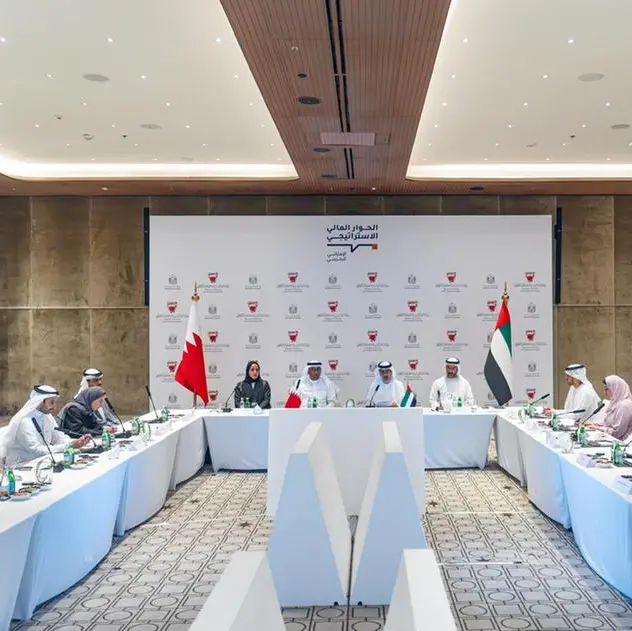Abu Dhabi, United Arab Emirates:
UAE Banks Federation (UBF), the representative and unified voice of banks in the UAE, on 20th February, organised a virtual workshop on transitioning from the London Interbank Offered Rate (LIBOR) to risk-free alternative interest rates (RFRs) such as the Secured Overnight Financing Rate (SOFR) and its impact on the banking sector and customers. The workshop was attended by several banking experts and federation members.
The LIBOR-SOFR transition is an important issue facing the global banking sector, as the interbank rate is the reference rate at which fixed or flexible interest rates are calculated on loans, receivables and payments from customers and are used in many financial transactions between banks and financial institutions.
The workshop was organised as part of UAE Banks Federation's role in providing a valuable platform for the exchanging ideas, experiences and collaboration on various issues concerning the banking sector, keeping abreast of the latest developments and trends, and raising awareness in order to consolidate the UAE's leadership position among the most prominent financial and banking centres worldwide.
The workshop reviewed the necessary preparations for the transition and ways to plan and manage the business through this phase while mitigating risks that banks and customers might face, as well as challenges and opportunities that arise during the transition to the new reference interest rate.
It also discussed the timeline for the transition and the fundamental differences between the London Interbank Offered Rate (LIBOR) and the Secured Overnight Financing Rate (SOFR), as well as market trends and their impact on liquidity and derivatives.
The participants pointed out the reasons for the transition from LIBOR, which will be based on the "best estimate" of the reference rate and the shift by central banks from LIBOR's five major currencies to alternative price indicators based on actual and guaranteed daily transactions, known as risk-free price indicators, which are regulated by central banks.
Speaking at the workshop, Mr. Bruno Lettich, Head of Global Interest Rates and Total Portfolio Management at Standard Chartered Bank, described to the participants the main features of the Secured Overnight Financing Rate (SOFR) as an interest rate indicator used by financial institutions to price customer loans and based on the interest rates that large financial institutions pay each other. He also touched on the technical aspects of the transition from LIBOR to SOFR.
The Secured Overnight Financing Rate (SOFR) provides a more transparent, accurate and reliable way to determine a standard reference rate based on actual and observed transactions.
Commenting on the event, Mr. Jamal Saleh, Director General of UAE Banks Federation, said, "The banking sector in the UAE, under the direct supervision and guidance of the Central Bank of the UAE, is keeping pace with the latest trends and policies in order to provide optimal banking services that meet the needs of customers and provides them with the necessary financing to achieve their goals. This is why we at UAE Banks Federation organise events and interactions that contribute to the exchange of views, knowledge and experiences for our members while enhancing bankers' skills to provide the best services to customers in a safe and secure banking environment."
"Since most financial institutions adopted LIBOR in the mid-eighties, it has played an important role as an approved reference rate for determining interest rates on banking products and derivatives worldwide. Given the developments and experiences of the banking sector over the past decades, transitioning to a more accurate and transparent reference rate is in the interest of both customers and financial institutions, especially as central banks play a greater role in risk-free price indicators. The workshop provided an opportunity to discuss ways to ensure a smooth transition of UBF member banks to the new reference rate."
-Ends-
UAE Banks Federation (UBF):
Established in 1982, UAE Banks Federation (UBF) is a professional representative body comprising 57 members of banks and organizations operating in the UAE. UBF advocates the interests of all its members and enhances cooperation and coordination between them in order to elevate the UAE's banking ecosystem for the benefit of members, customers, and the overall UAE economy.
UBF's mission and objectives are focused on representing its members and defending their rights and interest. UBF provides a platform for cooperation and exchange of ideas and expertise among its members and plays a major role in raising public awareness about the contributions of the UAE banking sector to the economic and social development of the country.
UBF has a 22-member Advisory Council consisting of CEOs and General Managers from member banks and institutions, which oversees the implementation of UBF's policies and activities. The CEOs Council also makes directional decisions through UBF's General Secretariat for UBF's 25 technical and 3 advisory committees, who in turn are tasked to discuss all issues relevant to the UAE banking and financial services ecosystem. The UAE Banks Federation also includes a Consultative Council, which consists of chief executives of other member banks.
For further information, please contact:
Sooyin Lee
UAE Banks Federation
sooyin@uaebf.ae



















